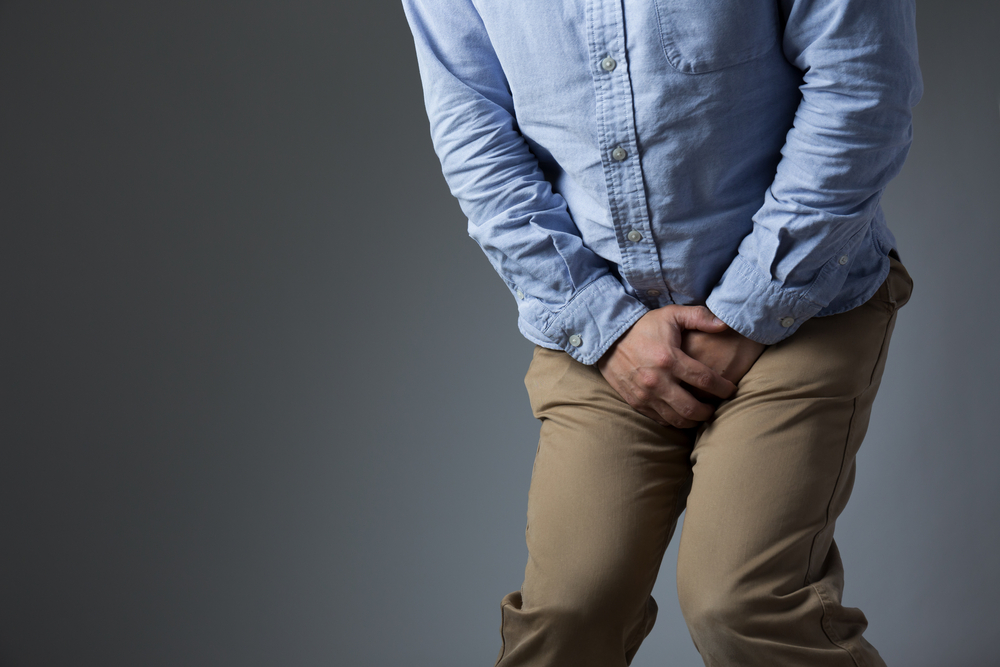Cystitis is a condition that results in the inflammation of the bladder walls. It is often considered as a low urinary tract infection, although it is highly common as well.
Cystitis isn’t a serious health condition, but if left untreated for a very long time can result in serious complications, which might lead to permanent damages.
Cystitis is a health condition that occurs when the urethra and bladder become infected by bacteria. These bacteria tend to fasten to the lining of the bladder, causing it to become inflamed and irritated. Although it is more common in female because they have shorter urethras, men are also prone to having this infection.
About 80 percent of urinary tract infections are caused by bacteria that get into the urinary tract through the bowel.
There is a sterile space in the urethra and bladder which once penetrated by bacteria, can result in infection. However, you should know that some of these bacteria make up the healthy intestinal flora. Urinary tract infection is the most common recorded infection in the U.S, and it is more rampant with people who have urinary catheters.
Symptoms of Cystitis
There are common signs to look out for, which could be a possible indication of the presence of cystitis. These include:
- Burning sensation in the lower abdomen while urinating (dysuria)
- Frequent need to urinate at night (nocturia)
- Low-grade fever, with muscle aches
- Cloudy and strong-smelling urine
- Little traces of blood in the urine (hematuria)
- Pain in the abdomen or lower back
In older men, cystitis can cause them to feel weak and feverish, without experiencing any of the symptoms, as mentioned earlier. Sometimes, they may also have mental state alterations.
It’s important to know that you can have cystitis without showing any symptom.
Cystitis comes with the frequent need to always urinate, but most times, little or no urine comes out at all. However, some illnesses can mimic the symptoms of cystitis; these include:
- Gonorrhea
- Chlamydia
- Bladder pain syndrome
- Prostatitis
- Kidney stones
- Candida
- Urethritis
Long Term Effect of Cystitis
It is a rare occurrence for complications to arise for those who have cystitis. But recurring cystitis can lead to a kidney infection if left untreated. This condition can be quite serious, but it can still be treated with antibiotics.
Causes of Cystitis in Men
Although cystitis is rare in men, it can occur for a more serious cause than in women, such as prostate infection. It can also be caused by the compression of a tumor which can lead to reducing the flow of urine out of the bladder. Men who have diabetes or kidney infections have a higher risk for developing cystitis, as with those who wear a urinary catheter. Constant exposure to certain chemicals, like those found in soaps and bath foams, can cause cystitis in some men.
Male cystitis can be caused by the following:
- Kidney stones
- Narrowing of the urethra which is a urinary tract abnormality
- Urinary tract obstruction caused by a growth
- Prostatitis or benign prostatic hyperplasia
Types of Cystitis in Men
If you have been diagnosed with cystitis, it is important to know what type. There are many types of cystitis which can leave you confused; however, you are not alone. Let’s look at the types of cystitis, so you can know the signs to watch out for.
Interstitial Cystitis
Men who have this particular type of cystitis have all the symptoms of urinary tract infections. Still, when a urine culture is carried out, there are no signs of bacteria, fungi or even virus. Interstitial cystitis was initially believed to be caused by an injury or dysfunction to the bladder, but recent research has proven that so many men have underlying pelvic muscle injuries that contribute to the symptoms.
Eosinophilic Cystitis
This is a rare type of cystitis, and it is known for its buildup of eosinophils – a type of white blood cells. Eosinophils stay in the bloodstreams, but in small amounts, and the body produces more in response to allergies, infection and autoimmune diseases. Sometimes, the buildup of eosinophils in certain organs cab cause injury and inflammation to the bladder, stomach, and blood vessels.
Radiation Cystitis
This type of cystitis occurs due to radiation therapy for cancer treatment. Cancer treatment that occurs in the pelvic area, like the prostate and bladder, can trigger the inflammation of the tissues supporting the bladder performance. The symptoms of radiation cystitis vary based on individuals, it can be short term or long term, and these symptoms include, incontinence, contracted bladder, blood in the urine, and some severe cases, it can lead to death.
Ketamine Cystitis
Ketamine bladder syndrome is a newly reported type of cystitis, caused by the recreational use of ketamine. It was first documented in 2007, by clinics in Canada, USA, and Asia. People who abuse this drug tend to have severe and sometimes irreversible bladder damage. Prolonged use of this drug can cause serious damage to the urinary tract.
Drug Induced Cystitis
Certain medications, such as chemotherapy drugs can lead to inflammation of the bladder. This is because the broken down components of the drugs pass out of your body.
Chemical Cystitis
Some people are highly sensitive to the chemical components contained in products like soap, sprays and bubble baths. This can cause them to develop an allergy reaction in the bladder and can result in inflammation or injury of the bladder.
When to See a Doctor
You should seek help as quickly as possible if you are experiencing any pain relating to kidney infection, such as:
- Constant fever
- Dizziness and vomiting
- Back and side pain
If you begin to develop the urge to urinate frequently, contact your health care provider, and if you experience painful urination with a tinge of blood, seek help immediately.
Also, if symptoms of cystitis recur after taking proper treatments, you should call your doctor immediately, as you might need a different type of medication.
However, if you are healthy, and you develop cystitis, which is rare, you should still see your doctor so that thorough investigation can be done.
Treatment
To make a diagnosis of cystitis, your doctor might carry out a urine analysis and cystoscopy. Treatments are usually centered on the underlying cause, and most times, the treatment involves antibiotics.
If you have mild cystitis, it can clear up within a few days, but also make sure you stay properly hydrated. To relief pain, drugs like ibuprofen and paracetamol can prove helpful. But it if you are experiencing severe symptoms, your health care provider might prescribe a short dosage of antibiotics.
When treated early, cystitis doesn’t lead to any serious complications, but it can be extremely painful. However, if an obstruction causes it, it would need to be treated first, before treating cystitis. If left untreated for a while, it can cause chronic urinary tract infection, which can further progress to a kidney infection.
During treatment, ensure you are always well-rested, even when the symptoms are acute. Avoid taking drinks that contain caffeine like coffee or even alcohol, and be sure to be properly hydrated.
Having sex with your partner should be avoided, when you are on treatment, until after about two weeks if you are asymptomatic. This is more than enough time to see if any symptoms would recur.
Risk Factors Associated with Cystitis
The following factors can increase the risk of a man developing cystitis:
- Homosexual activity
- Excessive intake of alcohol
- Blockage in the urinary tract, often caused by an inflamed prostate
- Recent surgery that involved the use of a catheter
Prevention Practices
Practices that can help lower the risk of you developing cystitis include:
- Ensuring immediate treatment of urinary tract infections
- Use of condoms during anal sex
- Keeping your body properly hydrated, with at least eight glasses of water daily
How to Avoid and Manage Cystitis
- Do not make use of scented bubble baths or talcum powder on your genitals, or the area surrounding it.
- Opt for a shower rather than a bath. This is to ensure proper washing away of the chemicals that your body has been exposed to – from cleaning products.
- Make sure you always empty your bladder when you want to urinate, and do not hold your urine for a prolonged time. That’s because delaying can put extra stress on your bladder, making it defenseless against bacterial infections.
- Immediately after sex endeavor to empty your bladder, to flush away unwanted bacteria.
- There is still one conflicting research on the effectiveness of cranberry juice in treating bladder infections. However, you can give it a try, as it has no side effects. Cranberry extracts are also beneficial, as it is known to prevent bacteria from attaching itself to the walls of the urinary bladder.
- Wear underwear that are loose and made of cotton, to give your genital area enough room to breathe, and also prevent irritation. Wearing underwear made of tight nylon should be avoided, the same with tight jeans and trousers.
- Men who have a higher risk of developing cystitis should avoid coffee and extremely spicy foods.








COMMENTS